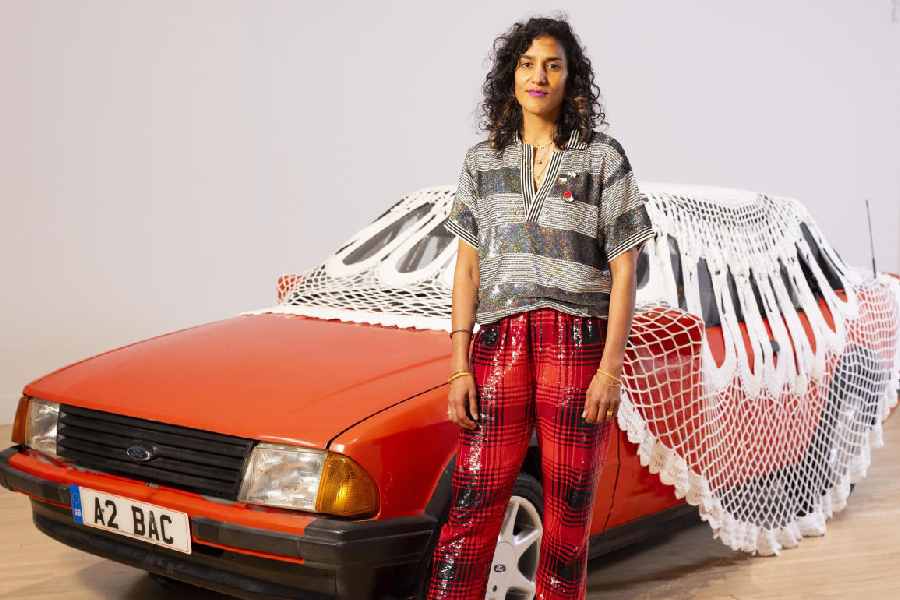Jasleen Kaur, an artist whose recent installation work focuses on her childhood growing up in a Sikh community in Scotland, on Tuesday won the Turner Prize, the prestigious British art award.
The announcement was preceded by a small but noisy pro-Palestinian protest outside Tate Britain, the art museum in London where the prize ceremony took place.
As the award dinner began, about 100 activists gathered at Tate Britain’s steps and listened to speeches demanding that the Tate group of museums end any association with Israel, including the high-profile donors Anita and Poju Zabludowicz. In a protest letter published online, the activists said the Zabludowiczes have “well-documented economic and ideological links” to Israel’s government through the Tamares Group, the family’s real estate investment business.
The letter’s signatories included Kaur and two of the other artists nominated for this year’s Turner Prize, Claudette Johnson and Pio Abad.
While accepting the award onstage, Kaur, draped in a scarf in Palestinian colours, said she supported the protesters and called for Tate to end ties with Israel. “It’s not a radical demand — this should not risk an artist’s career or safety,” she said.
She then said “Free Palestine” to cheers.
Alex Farquharson, the director of Tate Britain and chair of the Turner Prize jury, said before the ceremony that he would not comment on the protesters or their demands and that he just wanted to focus on Kaur’s art.
Kaur, 38, was born in Glasgow, and grew up in the city’s Sikh community. She studied silversmithing and jewellery at the Glasgow School of Art and the Royal College of Art in London. She has mainly displayed work in group shows but was nominated for the exhibition “Alter Altar” — which featured items related to her upbringing as well as music playing out of a car stereo and a mechanically operated harmonium — at the Tramway arts venue in Glasgow.
Farquharson, the jury chair, said Kaur “creates environments out of often very throwaway items” that when put together speak to much larger personal, political and spiritual issues. Her work, some of which is in an exhibition at Tate Britain that is open through February 16, is as irreverent as it is reverent, Farquharson said.
The Turner Prize was founded in 1984 and is one of the art world’s major awards. Several of its past winners, who have included Wolfgang Tillmans, Steve McQueen and Lubaina Himid, have gone on to become stars. Critics almost unanimously praised last year’s choice of Jesse Darling for the prize.
New York Times News Service











